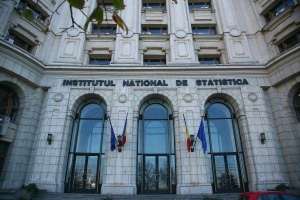• The optimism is caused by the hope that the foreign aid agreement will be signed
• The negotiations, postponed until Wednesday
Europe's ugly duckling, Greece, was last month's surprise, as its stock market posted the biggest gain on the continent (+17%), according to the report of the Federation of European Securities Exchanges (FESE).
Even more surprising, banks were the stars of the month, with the index which tracks the sector gaining 83%.
It needs to be said however, that the gains come after the market fell over 50% in 2011.
It seems that investors, in particular the Greeks, who were net buyers in January, had high hopes for a positive outcome of the negotiations between the authorities in Athens and the international institutions on the conclusion of a new agreement of foreign financing.
Foreign investors were net sellers in January, with net capital outflows of 34.99 million Euros.
Some analysts are saying that even if Greece succeeded in avoiding a disorderly default, the recent rise of its stock market is somewhat exaggerated. Others consider that the gains of the bank stocks which was sparked by the agreement on the terms for the recapitalization of the (ed. note: following the losses incurred in after the haircut of the Greek sovereign debt they held - with the measure being part of the financing agreement), which seems to favor a solution which would not involve their nationalization.
Nicolae Gherguş, the president of "Confident Invest", explained: "In the context of the sovereign debt crisis, the bank stocks had fallen last year.
In January we saw a correction, amid the optimism concerning the resolution of the Greek problem and the European support for the Greek government", Gherguş says, and went on to say:
"Greece had the biggest rise in January, because it had also had the biggest drop.
Banks in particular had fallen dramatically, because they had borrowed money to the Greek state. A Greek default would have led to certain losses to many of the banks, as some of them would have lost on the bonds, and others were counterparties for the CDSs (ed. note: credit default swap - insurance instruments against sovereign defaults). But an agreement of the majority of investors on the < haircut > (ed. note: the wiping) of the debt is not considered a < default >, which means that the CDSs are not activated".
"Thus, the losses are capped and their extent is known, but I think that this is only for the moment".
• Movie-like rescue or unhappy ending?
For now, the euphoria in the stock market doesn't seem too justified.
Suspense reached a climax and everyone is waiting to see whether Greece would get the dose of oxygen at the last minute to avoid default.
Greece runs the risk of defaulting in mid-March, if it does not receive the financial aid package of 130 million Euros.
But the ministers in the Eurozone have extended the agony, as they were unhappy with the behavior of the Greek authorities.
On Thursday night in Brussels, they have decided to postpone until Wednesday the authorization of a new financial aid plan for Greece, by imposing several demands, including the making of new budget cuts (325 million Euros).
• The plan was scheduled to go through the Parliament on Sunday
Another condition was for the Greek parliament to have approved, by Sunday (ed. note: the vote was scheduled to take place at midnight), the austerity plan which the government in Athens had agreed upon with the troika EU, ECB and IMF troika, with the backing of the political parties in Greece.
On the night of Friday to Saturday, the Greek coalition government approved the austerity plan demanded by the IMF and the European Union, as PM Lucas Papademos warned against the risk of "uncontrolled chaos" in Greece, if the parties did not back the plan. Analysts were betting on a favorable vote in the Parliament, because the parties in the coalition include over 230 MPs, out of a total of 300. Still, some of the MPs of the governing parties were expected to vote against the austerity plan.
• Efforts to avoid activating the CDSs
Last week, Greek Finance Minister Evangelos Venizelos announced that he has reached an agreement with the private creditors to wipe some of the country's debt.
The agreement negotiated for several weeks between Greece and the private sector concerns the wiping of 100 billion Euros off its debt towards banks and other investment funds. The objective set by the leaders of the Eurozone is to lower the level of Greece's public debt to a level considered bearable, more specifically to 120% of the GDP in 2020.
This threshold is a condition for the IMF to continue lending to Athens.
Some foreign analysts were expecting hedge funds with exposure to Greek bonds to refuse the debt reduction, since the default and namely the activation of the CDSs would have been favorable.
European officials, including former ECB head Jean Claude Trichet, have tried to avoid the default, precisely to avoid the activation of the CDSs, which would have encouraged the "bets" against other countries in debt, such as Italy, Portugal or Spain, and would have worsened the debt crisis.
As the European Central Bank showed no signs that it wanted to participate in the efforts to reduce Greece's debt, some hedge funds bought Greek bonds precisely in the hope that an agreement would not be reached until March, when payments worth 14.4 billion Euros were coming due.
• The intervention of gray eminence Jean-Claude Juncker
On Friday however, the president of the Eurogroup, Jean-Claude Juncker, said that the ECB needs to review, in the context of its independence, how it can contribute to lower the Greek debt. "I hope something can be found", Juncker said.
Analysts estimate that the portfolio of Greek bonds owned by the ECB amounts to approximately 50 billion Euros.
The president of the ECB, Mario Draghi, said: "Concerning Greece, I am sorry that I cannot say anything on how we are going to deal with the Greek bonds that we own".
Anonymous sources have said that the representatives of the ECB do not have a common position on the contribution of the ECB to the restructuring of Greece's sovereign debt, whereas Greek private lenders are being forced to wipe 50% off the worth of their Greek bonds holdings. Frank Vogl, spokesperson to co-president of the Steering Committee of the Private Creditor-Investor Committee for Greece, made the following statement after the meeting of the Eurogroup which took place last week: "We appreciate the progress which was achieved in the Greek program. We are anxiously waiting for Wednesday, at the new meeting, for the whole package to be completed, including the PSI (ed. note: the involvement of the private sector - agreement with the private creditors), based on the agreement of the Eurogroup summit, of October 27th, 2011".
• Greeks out in the streets again
Throughout the weekend, the Greeks protested against the new austerity plan requested by the country's creditors.
On Saturday, almost 7,000 Greeks, according to the police, protested in Athens and Salonic, for the second day in a row, summoned by the main Greek unions. In Athens, almost 3,500 protesters had gathered in the Syntagma square at noon, which has been the focal point of the gatherings since the beginning of the Greek crisis, whereas several groups gathered on the adjacent roads. In Salonic, the number of protesters reached 4,000, according to the police.
The protests occurred after a call for a 48-hour general strike, which began on Friday, made by the main union groups in the country, in response to the new austerity measures demanded by Greece's creditors in exchange for a new loan of 130 billion Euros.
Greece's largest police union has threatened to issue arrest warrants for officials from the country's European Union and International Monetary Fund lenders for demanding deeply unpopular austerity measures, the Guardian writes.
•
• The plan
The measures provided in the austerity plan put up for vote in the Greek parliament include:
- The minimum wage would be cut 22% compared to its January 2012 level; For people less than 25 years old, the cut would be equal to 32%
- The elimination of the automatic wage increases, including the seniority bonus;
- A 3-year limit on the collective wage agreements;
- Before the end of 2012, 15,000 public sector workers will be put on technical leave and paid 60% of their base salary, before being laid off in one or two years, for those nearing their retirement age.
- The cutting of the public investment budget by 400 million Euros
- The cutting of the pensions or of the largest complementary pensions, in order to allow for subsidies to be reduced by 300 million Euros
- Each bank will be given a deadline by the Central Bank to proceed with a recapitalization, with the final deadline being September 2012.
Additional savings of 325 million Euros will be found and implemented in cooperation with the European Commission, the European Central Bank and the IMF.
•
• Bank stocks, among the most traded on the European exchanges
On the European exchanges, the shares of banks, faced with financial problems, amid the sovereign debt crisis, were among the most heavily traded stocks in January, according to the report of the FESE.
On the Athens Stock Exchange, the shares of National Bank of Greece were among the most liquid last month, accounting for 25.74% of the total exchanges, whereas the transfers of Alpha Bank and Bank of Cyprus accounted for 10.33%, and 6.06% of the total, respectively.
Shares of OTP accounted for 74.44% of the total trading volume on the Budapest Stock Exchange, whereas those of Garanti Bank represented 19.83% of the total volume traded on the Istanbul Stock Exchange.
"Erste Group Bank" had the highest turnover on the Vienna Stock Exchange (22% of the total), and the third largest in Czech Republic (18.31% din total).
Shares of Raiffeisen Bank International were also heavily traded in Vienna last month, amounting for 8.36% of the total turnover.
•
• FESE: The Bucharest Stock Exchange, the third biggest rise in Europe
Stocks on the Bucharest Stock Exchange rose 10.7% on average in January (ed. note: as indicated by the BET-C index expressed in Euros), coming in third after the gains of the Athens Stock Exchange (ed. note: +17% for the Athex Composite Share Price index) and of that of Istanbul (+11.5% for the ISE 100 Price Index), according to the report of the Federation of European Securities Exchanges (FESE).
January was a good month for the European stock markets: according to the FESE statistics, the only ones that posted drops were BME Madrid, Malta Stock Exchange and Oslo Bors.
Last month, stock trades in Bucharest amounted to 139 million Euros, in Bucharest, with 66,537 trades in total. In this respect, the BSE is only above the exchanges of Ljubljana, Bulgaria, Luxemburg, Bratislava and Malta.
The total value of trades on the BSE was 159.2 million Euros, in January, down 1.13% compared to the previous month. The average daily turnover was 7.96 million Euros.
On the BSE, the shares of the Proprietatea Fund (FP) accounted for 39% of the total turnover, followed by shares of SIF2 Moldova (10.09%) and SIF3 Transilvania (9.55%).
•
On the Athens Stock Exchange, shares of National Bank of Greece were among the most highly liquid last month, accounting for 25.74% of the total trades, whereas trades in Alpha Bank and Bank of Cyprus accounted for 10.33%, and 6.06% of the total, respectively, according to the report of the Federation of European Securities Exchanges (FESE).
The shares of National Bank of Greece gained 116%, in January, after a fall of 60% in 2011. Shares of "Alpha Bank" also gained 190% last month, after falling 62%, last year.
On Friday however, stocks of Greek banks sold off strongly, as the governing coalition in Greece announced that it would not back further budget spending cuts demanded by the Finance Ministers in the Eurozone.
Shares of "National Bank of Greece" SA, the largest Greek bank, fell 9.5%, to 2.68 Euro. Also in Greece, shares of "Alpha Bank" SA fell 9.4%, to. 1.45 Euros, and those of "EFG Eurobank Ergasias" SA - fell 9.3%, to 88 Eurocents. The government later approved the austerity plan, and the vote in the Parliament was scheduled to take place on Sunday.
•
• The biggest exposure to Greece
The Spanish government - 462 million dollars
Spanish Creditors - 1.15 billion dollars
*
The Swiss government - 571 million dollars
Swiss creditors- 3.41 billion dollars
*
The Italian government - 1.87 billion dollars
Italian creditors - 3.73 billion dollars
*
The Belgian government - 1.9 billion dollars
Belgian creditors - 10.5 billion dollars
*
The American government - 2.62 billion dollars
American creditors - 8.23 billion dollars
*
The French government- 10.69 billion dollars
French creditors - 55.78 billion dollars
*
The German government - 12.41 billion dollars
German creditors - 21.37 billion dollars
Source: Business Insider



















































